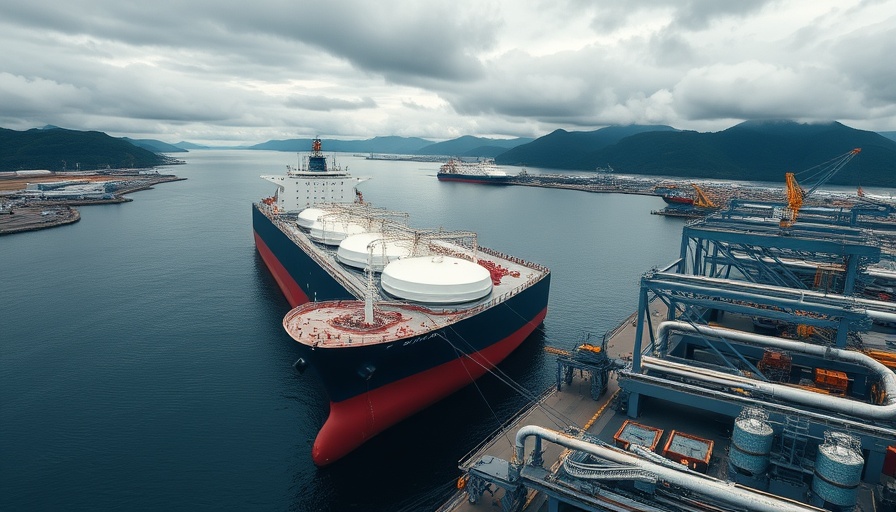
Canada's Ambitious LNG Plans for Germany
As the global demand for energy sources shifts and escalates fueled by the ongoing pressures of climate change and geopolitical tensions, Canada finds itself in a crucial position. Prime Minister Mark Carney has signaled renewed discussions with Germany about the potential for liquefied natural gas (LNG) exports. These discussions, articulated during Carney's recent visit to Berlin, reflect a burgeoning ambition to strengthen economic ties with European nations while addressing energy supply concerns.
The Urgency of Infrastructure Development
In light of these discussions, Carney emphasized that Canada will soon announce funding for new port infrastructure to facilitate LNG exports. This includes significant expansions, such as the Contrecoeur expansion at the Port of Montreal, aimed at increasing capacity by 40 percent. Furthermore, the revitalization of the Churchill port in northern Manitoba holds promise for enhancing shipping routes not only for LNG but also for critical minerals and metals essential to Europe’s energy transition.
Critics' Concerns: A Race Against Time
Despite the optimism, critics argue that these plans come too late. The need for a swift implementation is underscored by a commitment to ship LNG within five years, which some industry experts view as overly ambitious. Tim Hodgson, Canada’s Energy Minister, reiterated that the pace of development must match the urgency of Germany's energy needs as it seeks alternatives to Russian gas in the wake of the Ukraine conflict.
A Broader Perspective: Geopolitical Implications
Germany’s quest for reliable energy sources has intensified amid fluctuating global power dynamics. The country’s decision to pivot away from Russian gas, propelled by geopolitical tensions, opens the door for Canada to solidify its market position in Europe. By exporting LNG, Canada not only enhances its economic standing but also assists Germany in achieving energy independence, which reflects a strategic alignment of interests.
Future Prospects: More Than Just Gas
Beyond LNG, the proposed expansions also present opportunities for exporting essential critical minerals and metals, vital for technologies like batteries and renewable energy systems. This could position Canada as a critical supplier of not only energy but also components necessary for Europe’s sustainability goals. The implications of these developments have the potential to reshape trade relationships and energy security on a continental scale.
Local vs. Global Perspectives: The Impact on Canadian Communities
The expansion of LNG facilities and ports is not just an international affair; it has local ramifications as well. Projects like the Churchill port revitalization could bring economic opportunities, jobs, and infrastructure development to remote communities in Manitoba. Nevertheless, it is essential to address the environmental concerns that accompany such expansions, ensuring that sustainability remains a priority amid the drive for energy production.
Decision-Making in Uncertain Times
For policymakers and business leaders, the discussions around LNG exports to Germany come at a critical juncture. Decisions must be made swiftly regarding investments, regulatory approvals, and the balance between economic growth and environmental stewardship. The steps taken now will influence Canada’s energy landscape, trade relationships, and its role as a global energy player for years to come.
Your Role in Shaping the Future
As Canada charts a new course in its energy diplomacy, it’s vital for stakeholders—including governments, businesses, and communities—to engage in discussions about the implications of these decisions. Understanding the broader context of LNG exports, from local community impacts to global energy dynamics, empowers all Canadians to engage with these developments thoughtfully.
Join the conversation on the future of Canadian energy and its role in global markets. Stay informed, stay engaged, and influence the trajectory of this crucial sector.
 Add Row
Add Row  Add
Add 




Write A Comment